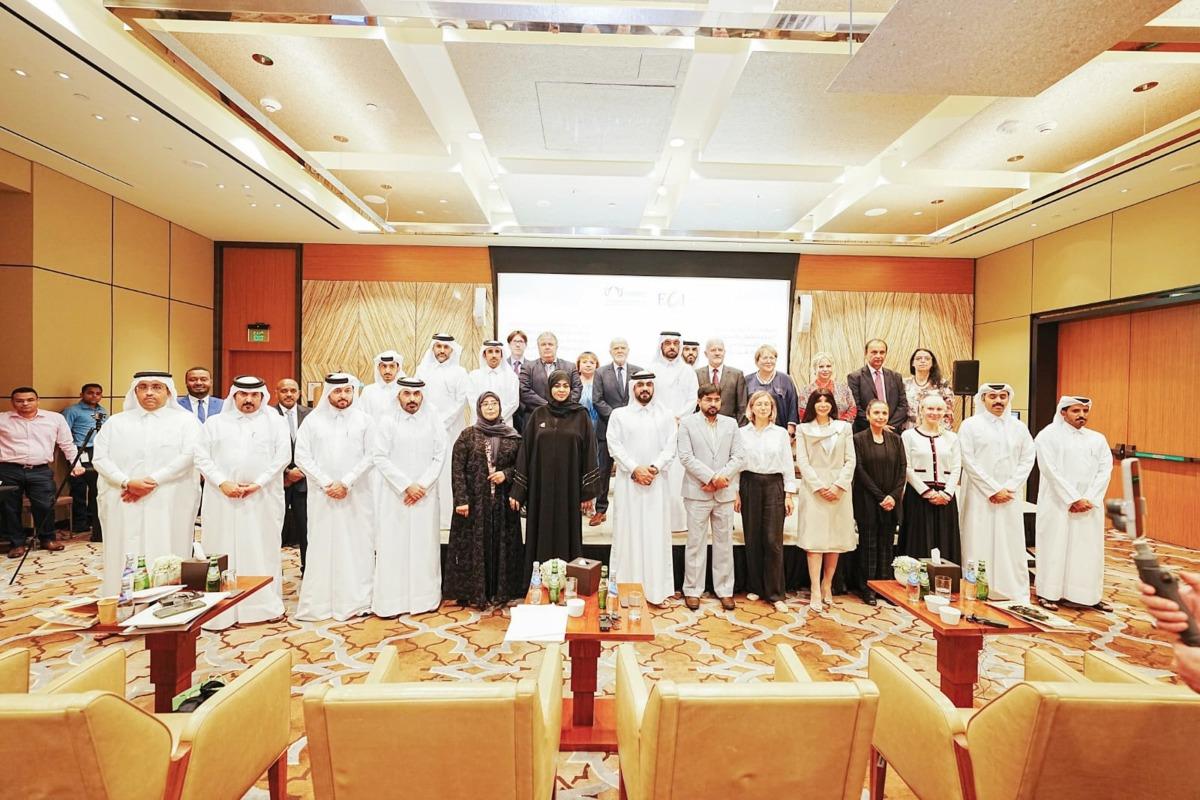
NHRC Conference Calls For Protecting Children, Vulnerable In Conflict Zones
Doha, Qatar: An international conference held in Doha yesterday called for the protection of children, women and other vulnerable groups in armed conflict zones.
The conference on 'Protecting Children and Other Vulnerable Groups in Times of War and Migration' was organised by the National Human Rights Committee (NHRC) in cooperation with The European Ombudsman Institute (EOI).
Addressing the opening ceremony, EOI President Prof Dragan Milkov said that childhood is arguably the most vulnerable period of human life. He said that children are highly dependent on others to satisfy their basic needs, and this makes them particularly vulnerable.
“This is, of course, true for other stages of life as well. Many elderly people, for example, are not able to care for themselves,” said Milkov. He said that war and migration events made the position of children even worse when they became totally unprotected victims.
Secretary-General of the National Human Rights Committee Sultan Hassan Al Jamali said that the protection of children and other vulnerable groups is a top priority for the national human rights aspect of the State of Qatar.
In this context, he said:“We exerted multiple efforts that include awareness-raising, monitoring, providing advice for various stakeholders, and building effective partnerships with relevant regional and international institutions.”
He said that the conference provided a platform to share experiences and best practices and identify challenges that lead to increased discrimination, neglect, violence, exploitation and other violations against children, women and the elderly especially those in conflict zones.
Head of Analysis and Outreach Hub in Doha – Office of the Special Representative of the UN Secretary-General for Children and Armed Conflict Dawoud Almassri said that Children are among the most vulnerable in any crisis-they are voiceless in decisions that affect their futures, yet they bear the heaviest burdens of conflict, war, displacement, and instability.
“In recent months, we have witnessed increased instability across many regions. Armed conflicts, natural disasters, and other crises have driven millions of children into extreme vulnerability, where they face dangers that threaten not only their immediate safety but also their future,” said Almassri.
He said that these children are not mere victims of the crossfire; they are the silent witnesses and direct targets of violence, displacement, and loss.
“The most recent report by the Secretary-General on Children and Armed Conflict underscores the alarming situation facing children in conflict zones. In 2023 alone, nearly 33,000 grave violations against children were documented globally-this figure likely represents only a fraction of the actual incidents,” said Almassri.
He said that this troubling trend highlights the urgent need for enhanced measures to safeguard children from exploitation and violence.
In its communique, the conference recommended for supporting the efforts to find peaceful solutions to current international crises.
It emphasized the prevention of targeting children, women and other vulnerable groups in armed conflict areas, as well as the infrastructure that provides services indispensable to the survival of the population.
It is also needed to end impunity for all crimes committed in violation of relevant international laws, the conference noted. Enhancing the roles of national human rights institutions in promoting respect for and compliance with human rights protection standards, and based on the conference deliberations, the participants made the recommendations.
They called for effective enforcement of international treaties on the rights of children and other vulnerable groups, implementation of recommendations of relevant regional and international mechanisms, and intensification of efforts to reach a binding international agreement on the rights of older persons.
The communique stressed to ensure the principle of the simultaneous application of international humanitarian and human rights law during armed conflicts, and work to protect children and other vulnerable groups, including by providing safe corridors to enable them to evacuate when necessary, and to receive relief services.
The participants called for upgrading national legislation with the requirements of international treaties, and enacting comprehensive legislation to protect children, women, persons with disabilities, the elderly and migrants from all forms of violence, discrimination and exploitation.
They also recommended to develop response programmes, especially in emergency situations for protecting children and other vulnerable groups from all forms of violence, exploitation and human trafficking, activating hotlines to receive complaints and provide support, shelter and legal assistance services.

Legal Disclaimer:
MENAFN provides the
information “as is” without warranty of any kind. We do not accept
any responsibility or liability for the accuracy, content, images,
videos, licenses, completeness, legality, or reliability of the information
contained in this article. If you have any complaints or copyright
issues related to this article, kindly contact the provider above.

















Comments
No comment